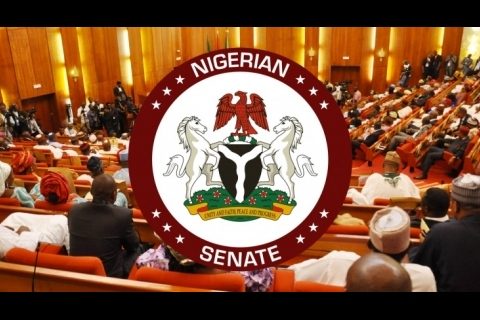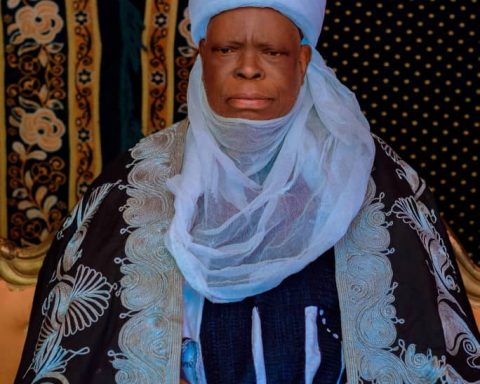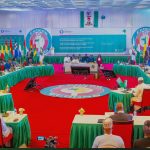The death of former Nigerian President Muhammadu Buhari has triggered an outpouring of tributes from leaders across the globe, honoring a man remembered as a disciplined soldier, principled statesman, and patriot who significantly shaped Nigeria’s political path in both military and civilian roles.
Former President Olusegun Obasanjo called him “a colleague, a comrade, a cool patriot, and a soldier who will be sorely missed.”
Join our WhatsApp ChannelFormer Vice President Atiku Abubakar described Buhari’s death as “a profound national tragedy,” hailing his “unflinching patriotism, stoic discipline, and lifelong commitment to the sovereignty and unity of our great nation.”
Despite his image as a symbol of discipline, Buhari’s presidency was marked by long stretches of medical absence that raised serious national debate. During his eight-year tenure, he spent over 200 cumulative days outside Nigeria for medical reasons, with most trips to the United Kingdom. In 2017 alone, he was away for 104 consecutive days from May to August, during which time Vice President Yemi Osinbajo served in an acting capacity. The Presidency never disclosed the exact nature of Buhari’s illness, referring only to “medical follow-up” or “rest,” a secrecy that sparked criticism from civil society groups and fueled conspiracy theories.
READ ALSO: Breaking: Ex-Nigerian President Buhari Dead
One such theory, widely circulated and firmly debunked, claimed Buhari had died during treatment in London and had been replaced by a body double, an allegation he personally denied in 2018. The persistent opacity surrounding his health drew scrutiny from opposition leaders, transparency advocates, and the public alike, raising questions about governance continuity and the state of Nigeria’s own healthcare infrastructure. His medical leaves came to symbolize the reliance of Nigeria’s political elite on foreign medical systems, with Buhari himself promising to improve domestic healthcare though critics argue little structural progress was made during his administration.
Nonetheless, many have chosen to remember his presidency for its unyielding focus on anti-corruption, national cohesion, and security reforms. Former Senate Presidents Ahmad Lawan and David Mark praised Buhari’s integrity and strategic focus. David Mark called him “a hero and a patriot,” and Senator Chris Ngige referred to him as “a selfless leader who brought moral clarity to public service.”
READ ALSO: Tinubu, Obi, Sanwo-Olu Mourn Ex-President Buhari
On the international stage, Buhari’s passing was met with solemn tributes. ECOWAS President Omar Touray lauded his leadership, calling him “a distinguished statesman whose invaluable contributions advanced democracy and integration in West Africa.”
The African Union Commission praised his pan-African vision and efforts toward multilateral cooperation. The U.S. Mission in Nigeria described him as “a leader whose life was defined by service and a commitment to restoring integrity to public office.” The Chinese and Ethiopian governments also expressed condolences, while Sierra Leone’s President Julius Maada Bio called it “a devastating loss to the region.”
Indian Prime Minister Narendra Modi said he was deeply saddened by the passing of Buhari. “I fondly recall our meetings and conversations on various occasions. His wisdom, warmth and unwavering commitment to India–Nigeria friendship stood out. I join the 1.4 billion people of India in extending our heartfelt condolences to his family, the people and the government of Nigeria,” Modi stated via his official X account.
World Trade Organisation Director-General Ngozi Okonjo-Iweala wrote that she was unaware of the severity of Buhari’s final illness and expressed “deepest condolences to the entire Buhari family.” Former AFDB President Akinwumi Adesina called him a leader of “patriotism and selfless service,” and Islamic scholar Mufti Menk described him as “an upright believer, May Allah forgive his shortcomings and grant him the highest ranks of Jannah.”
As Nigerians prepare to lay him to rest in his hometown of Daura, Katsina State, Buhari’s complex legacy marked by nationalist fervor, staunch conservatism, health-related absences, and a firm grip on discipline, remains the subject of reflection, admiration, and critique. He exits the national stage as one of Nigeria’s most consequential post-independence leaders, leaving behind a narrative shaped by duty, controversy, conviction, and history.
Amanze Chinonye is a Staff Correspondent at Prime Business Africa, a rising star in the literary world, weaving captivating stories that transport readers to the vibrant landscapes of Nigeria and the rest of Africa. With a unique voice that blends with the newspaper's tradition and style, Chinonye's writing is a masterful exploration of the human condition, delving into themes of identity, culture, and social justice. Through her words, Chinonye paints vivid portraits of everyday African life, from the bustling markets of Nigeria's Lagos to the quiet villages of South Africa's countryside . With a keen eye for detail and a deep understanding of the complexities of Nigerian society, Chinonye's writing is both a testament to the country's rich cultural heritage and a powerful call to action for a brighter future. As a writer, Chinonye is a true storyteller, using her dexterity to educate, inspire, and uplift readers around the world.










